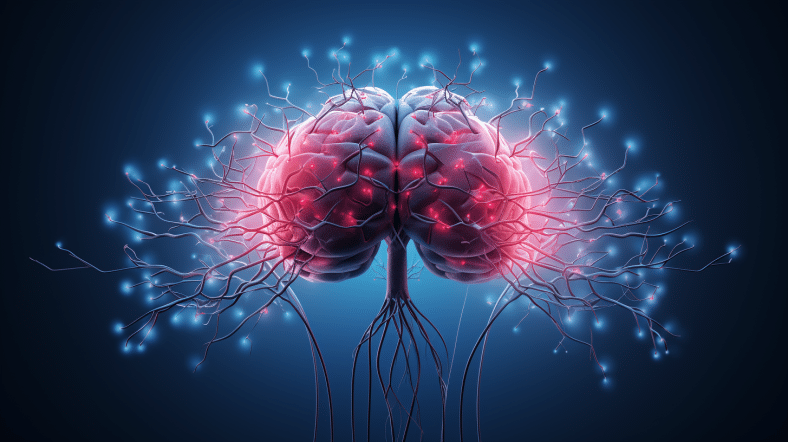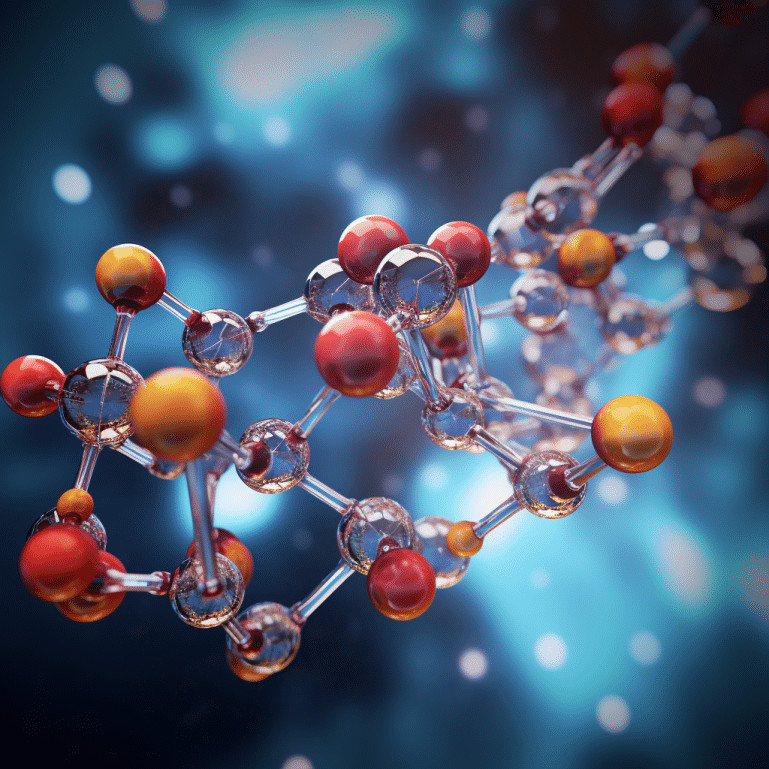Researchers have uncovered a critical role for the metabolic enzyme acetyl-CoA synthetase short-chain family member 2 (ACSS2) in depression, identifying it as a novel target for rapid-acting and long-lasting antidepressant therapies.
Findings show ACSS2 regulates both brain-derived neurotrophic factor (BDNF) levels to improve synaptic plasticity and serotonin synthesis through tryptophan hydroxylase 2 (TPH2) to mediate antidepressant effects.
Key Facts:
- ACSS2 controls BDNF levels and synaptic plasticity through translation regulation
- ACSS2 activates TPH2 transcription to increase serotonin levels for prolonged antidepressant effects
- The sugar D-mannose induces ACSS2 and demonstrates rapid and persistent antidepressant actions in mice
- ACSS2 represents a promising new therapeutic target for treating major depression
Source: Translational Psychiatry (2023)
D-Mannose: Rapid Antidepressant Effects in Mice via ACSS2
The research team conducted extensive experiments in mouse models and human cell lines to demonstrate ACSS2’s dual regulatory roles in depression through BDNF and serotonin pathways.
They also identified the simple sugar D-mannose as a potent ACSS2 inducer capable of robust antidepressant behavioral responses in mice.
The findings point to ACSS2 as a key node connecting cellular metabolism to neuronal plasticity and neurotransmitter regulation relevant to depression.
Developing treatments to enhance ACSS2 activity may provide faster and sustained antidepressant effects compared to current options.
ACSS2 Regulates Synaptic Plasticity and BDNF Levels
BDNF is a growth factor known to play a vital part in regulating synaptic plasticity, neurogenesis, and neuronal health.
Many studies have linked lowered BDNF levels to major depression.
The rapid antidepressant effects of the drug ketamine are thought to act through increasing BDNF translation.
In this study, the researchers found hippocampal BDNF levels were reduced when ACSS2 was insufficient or absent in mice.
This corresponded with impairments in synaptic spine density and plasticity as well as depressive behaviors.
They uncovered ACSS2 inhibits phosphorylation of eukaryotic elongation factor 2 (eEF2), a key regulator of BDNF translation.
Normally eEF2 phosphorylation suppresses BDNF translation. Therefore, ACSS2 relieves this suppression to favor BDNF protein synthesis.
Consistent with this finding, acute treatment with D-mannose decreased eEF2 phosphorylation and rapidly elevated BDNF in mice.
This shows ACSS2 induction can acutely boost BDNF levels to potentially improve synaptic plasticity and function in depression.
ACSS2 Activates TPH2 Transcription to Increase Serotonin
In addition to BDNF, the neurotransmitter serotonin is well known to regulate mood and depression.
TPH2 controls the rate-limiting step of serotonin synthesis in the brain.
The researchers found ACSS2 activates TPH2 gene transcription through a novel epigenetic mechanism.
When cellular AMPK is activated, ACSS2 gets phosphorylated and can translocate into the nucleus.
There ACSS2 produces acetyl-CoA to acetylate histones at the TPH2 gene promoter region.
This opens up chromatin structure and activates TPH2 gene transcription to elevate serotonin levels.
In support of this pathway, ACSS2 knockout or deficient mice showed dramatic reductions in TPH2 expression and serotonin levels in the hippocampus.
Chronic oral D-mannose administration in mice reversed chronic stress-induced decreases in TPH2 and serotonin through ACSS2 induction.
Therefore, ACSS2 integrates cellular metabolism signals to acutely boost BDNF translation as well as engage epigenetic mechanisms to prolong serotonin synthesis for sustained antidepressant benefits.
D-Mannose Shows Potent Antidepressant Effects in Mice
To demonstrate the promise of targeting ACSS2 for treating depression, the researchers screened several small molecule sugars for their ability to induce ACSS2 expression.
They identified the natural six-carbon sugar D-mannose as a highly effective ACSS2 inducer capable of rapid and sustained antidepressant behavioral responses in mice through ACSS2 pathway activation.
Remarkably, a single oral dose of D-mannose quickly reduced depressive behaviors in mice within 3 hours.
This rapid effect lasted up to 12 hours and corresponded with elevated hippocampal ACSS2, BDNF, and TPH2 levels along with increased serotonin.
In mice exposed to chronic stress to induce depressive symptoms, acute D-mannose treatment completely reversed the depressive behaviors.
Chronic oral D-mannose administration (10% in drinking water) also elicited potent antidepressant effects in different mouse models of depression, including reversal of chronic stress-induced molecular and behavioral changes.
The antidepressant efficacy depended on D-mannose induction of ACSS2 and TPH2.
D-mannose appears to activate ACSS2 through calcium signaling and AMPK pathway stimulation.
Collectively, the findings make D-mannose an exciting potential therapeutic agent for safe, rapid-acting, and sustained antidepressant effects by targeting ACSS2 signaling.
ACSS2 Represents a Novel Antidepressant Drug Target
Major depression continues to be a leading global health concern with a pressing need for better treatment options.
Existing antidepressants have delayed onset of action over weeks to months and are ineffective in many patients.
The current findings reveal the metabolic regulatory enzyme ACSS2 is uniquely positioned to rapidly elevate BDNF levels through translation control as well as prolong serotonin synthesis via epigenetic TPH2 activation.
Using D-mannose to enhance ACSS2 induction may harness these synergistic mechanisms for fast-acting and sustained antidepressant benefits.
While more research is needed, ACSS2 represents a promising new drug target for treating major depression with advantages over current antidepressant modalities.
Therapeutics stimulating ACSS2 activity, including optimized D-mannose formulations, could provide rapid relief of depressive symptoms along with persistent mood improvements and enhanced patient outcomes.
Further work should evaluate the effects of modulating ACSS2 in human brain cells and tissues.
Additionally, clinical trials will be important to assess the antidepressant efficacy and safety of D-mannose or other ACSS2-enhancing compounds.
Uncovering this new molecular player in depression provides exciting potential for developing the next generation of more effective antidepressant medications through an ACSS2-centered approach.
References
- Paper: D-mannose is a rapid inducer of ACSS2 to trigger rapid and long-lasting antidepressant responses through augmenting BDNF and TPH2 levels (2023)
- Authors: Nuo Chen et al.

